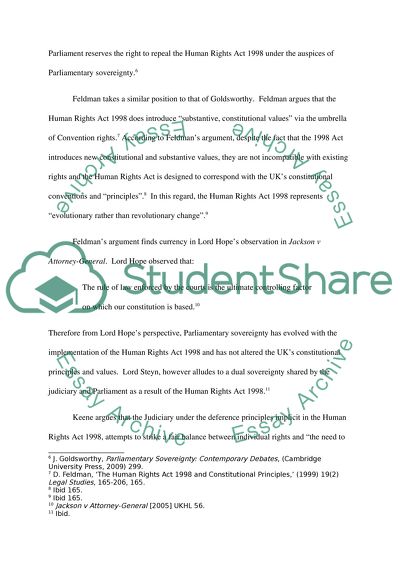Cite this document
(“The Human Rights Act 1998 and Parliamentary Sovereignty Essay”, n.d.)
Retrieved from https://studentshare.org/law/1413596-public-law-essay
Retrieved from https://studentshare.org/law/1413596-public-law-essay
(The Human Rights Act 1998 and Parliamentary Sovereignty Essay)
https://studentshare.org/law/1413596-public-law-essay.
https://studentshare.org/law/1413596-public-law-essay.
“The Human Rights Act 1998 and Parliamentary Sovereignty Essay”, n.d. https://studentshare.org/law/1413596-public-law-essay.


